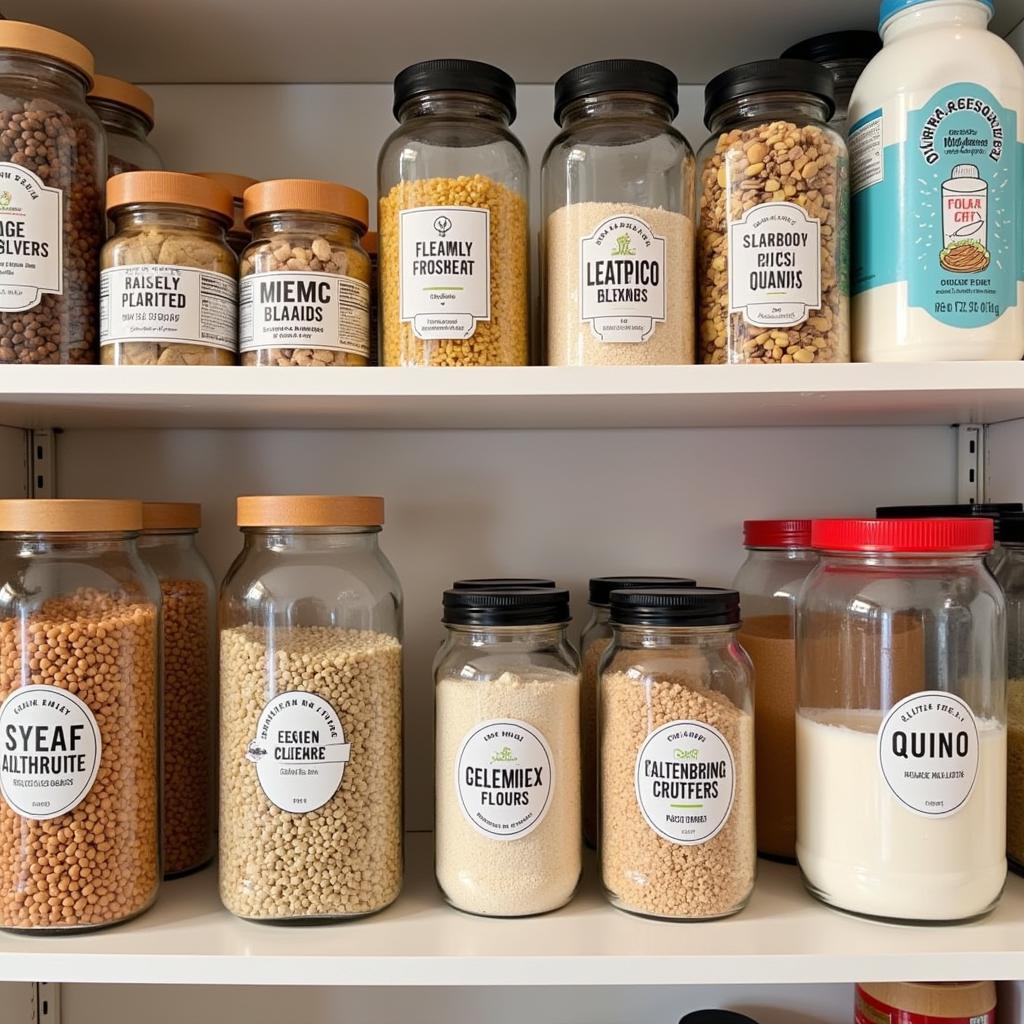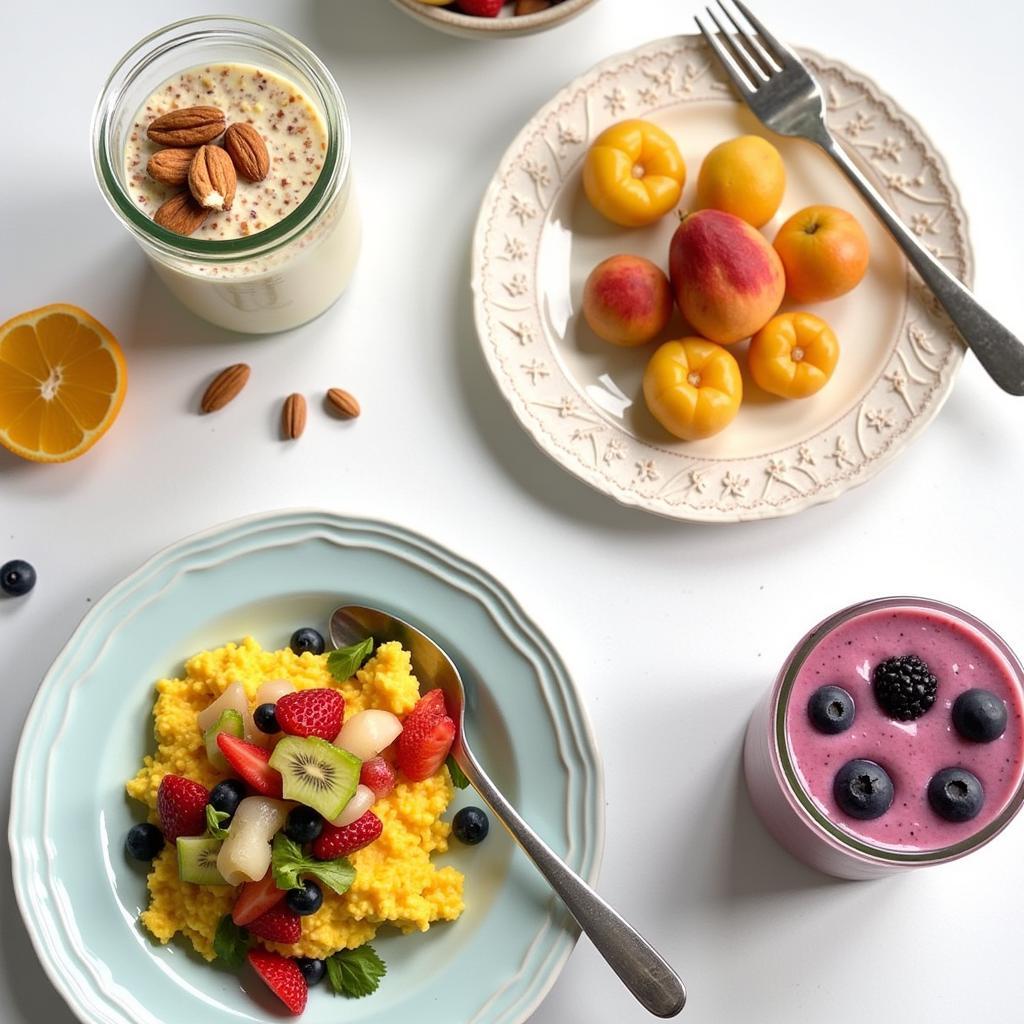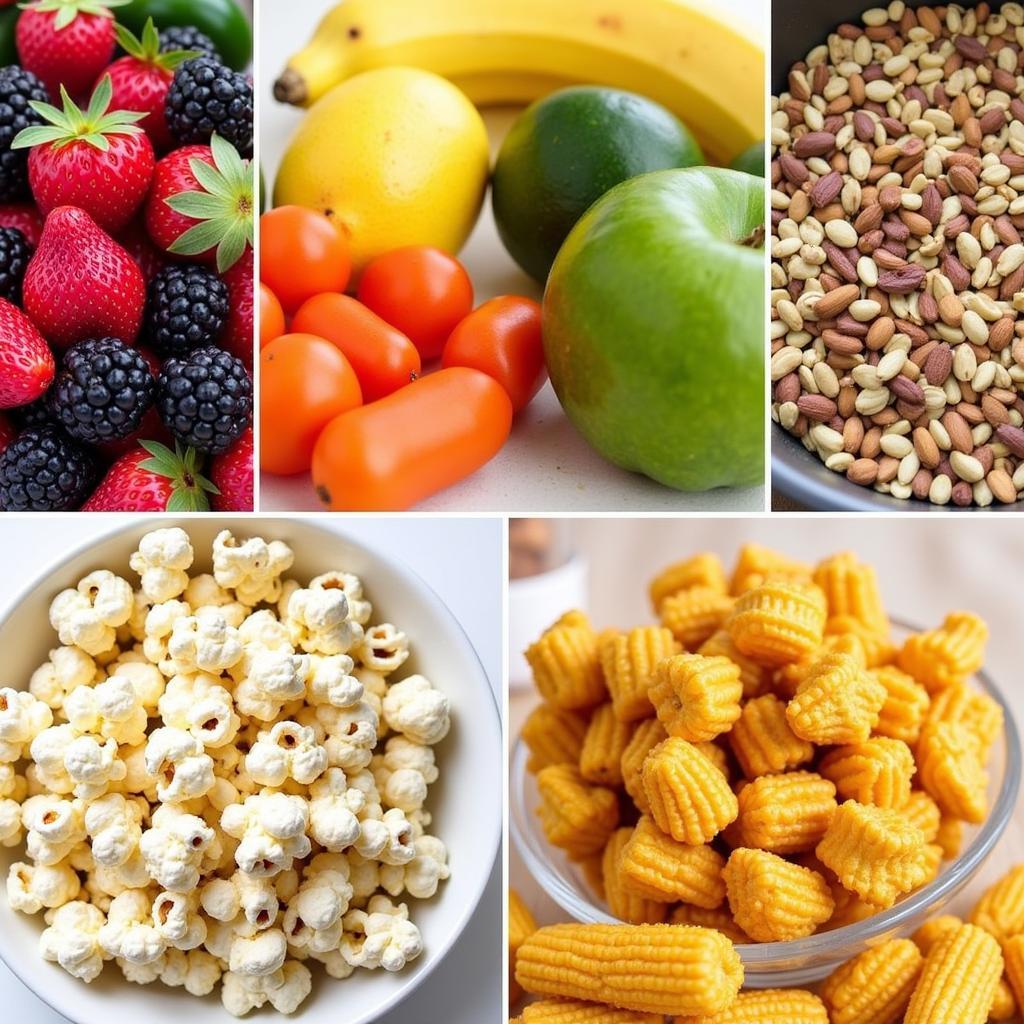A corn-free diet eliminates all forms of corn, including corn-based ingredients, additives, and byproducts. This dietary approach is typically adopted by individuals with corn allergies, intolerances, or those seeking to reduce their consumption of corn-based products for health or ethical reasons.
 Corn-Free Pantry Essentials
Corn-Free Pantry Essentials
Understanding Corn Allergies and Intolerances
Corn allergies trigger the immune system, potentially leading to symptoms ranging from mild hives to severe anaphylaxis. Corn intolerance, on the other hand, involves difficulty digesting corn, often resulting in gastrointestinal discomfort.
Deciphering Corn-Based Ingredients
Identifying hidden sources of corn is crucial for maintaining a corn-free diet. Be on the lookout for ingredients like:
- Cornstarch
- Corn syrup
- Dextrose
- Maltodextrin
- Modified food starch
- Citric acid (often corn-derived)
Exploring Corn-Free Alternatives
Fortunately, numerous delicious and nutritious substitutes can replace corn-based products:
- Grains: Rice, quinoa, millet, amaranth, grano foods, buckwheat
- Flours: Almond flour, coconut flour, tapioca flour, rice flour
- Sweeteners: Maple syrup, honey, agave nectar, stevia
- Thickeners: Arrowroot powder, tapioca starch, potato starch
- Oils: Olive oil, avocado oil, coconut oil
 Delicious Corn-Free Breakfast Ideas
Delicious Corn-Free Breakfast Ideas
Reading Food Labels Carefully
Always scrutinize food labels, even for products that seem corn-free. Manufacturers are required to list common allergens, including corn, on their packaging.
Dining Out on a Corn-Free Diet
Communicating your dietary needs clearly to restaurant staff is essential. Request detailed information about ingredients and preparation methods to ensure your meal is genuinely corn-free.
Benefits of a Corn-Free Diet
While individual experiences may vary, some potential benefits of a corn-free diet include:
- Reduced allergy or intolerance symptoms
- Improved digestion
- Decreased consumption of processed foods
- Increased intake of whole, unprocessed foods
 Convenient and Healthy Corn-Free Snacks
Convenient and Healthy Corn-Free Snacks
Potential Challenges of a Corn-Free Diet
Transitioning to a corn-free diet can present certain challenges:
- Limited food choices: Corn is a ubiquitous ingredient, making it crucial to plan meals and snacks in advance.
- Increased food costs: Corn-free alternatives can be more expensive than their conventional counterparts.
- Social situations: Dining out or attending social gatherings may require extra effort and communication.
Tips for Success
- Meal planning: Prepare meals and snacks ahead of time to stay on track.
- Batch cooking: Cook larger quantities of corn-free meals to have leftovers on hand.
- Reading labels: Become familiar with hidden sources of corn.
- Communicating your needs: Inform friends, family, and restaurant staff about your dietary restrictions.
Corn-Free Diet: A Journey of Exploration
Embracing a corn-free diet can be an adventure in culinary creativity and self-discovery. By focusing on whole, unprocessed foods and exploring delicious alternatives, you can enjoy a satisfying and flavorful way of eating that supports your health and well-being. For those exploring other dietary options, our articles on best foods to eat after all-on-4 implants and freeze dried gluten free food provide insightful information on specialized dietary needs.
Need help stocking up on bulk, corn-free options? Check out our selection of freeze dried foods bulk and air dried dog foods – perfect for convenient and long-lasting pantry staples.
Don’t hesitate to reach out to us at Mina Cones Food. Our team of experts is here to support you every step of the way. Contact us at 02437655121, email us at minacones@gmail.com, or visit us at 3PGH+8R9, ĐT70A, thôn Trung, Bắc Từ Liêm, Hà Nội, Việt Nam. We have a dedicated customer support team available 24/7.